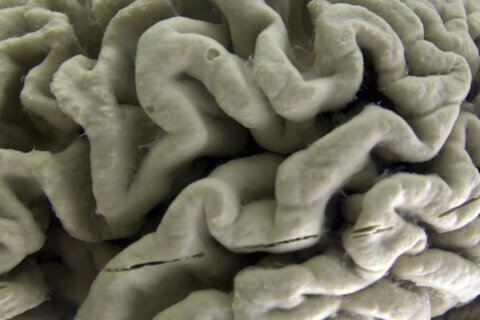Even though colleges are increasingly going test-optional, many students still choose to take the ACT and/or SAT in hopes of increasing their chances of admission. And because these high-stakes tests are known to cause anxiety, it is important for test-takers to keep negative feelings in check.
The following eight strategies can help you overcome stress before and during the exam:
— Ensure that all your materials are ready.
— Do a little physical exercise.
— Eat a filling, familiar breakfast.
— Look back at your starting point.
— Connect with an encouraging friend.
— Squeeze something.
— Control your breathing.
— Put the test in perspective.
Before the Test
Ensure That All Your Materials Are Ready
At least a day before your ACT or SAT, double-check that all your materials — your calculator, identification and pencils, for example — are ready to go. It’s important to follow this step early in case you end up needing to buy pencils, batteries for your calculator or the like.
[READ:How Important Are SAT, ACT Scores in College Admissions?]
It would be a shame to realize too late that you are missing something required to take the exam, so give yourself a wide berth to account for unforeseen mishaps.
Do a Little Physical Exercise
Countless studies have proven that physical exercise is a remarkably effective antidote to stress.Harvard University Medical School in Massachusetts declares that exercise “has a unique capacity to exhilarate and relax, to provide stimulation and calm, to counter depression and dissipate stress.” The Mayo Clinic in Minnesota agrees, stating that exercise reduces the “negative effects of stress” whilesimulating the positive ones,like increased alertness.
The morning of your test, you could do yoga for 20 minutes, take a short bike ride or walk briskly around the block. Whatever activity you undertake, make sure it is not either too strenuous or a new routine that could leave you sore and exhausted during the test.
Eat a Filling, Familiar Breakfast
You likely have heard that breakfast is the most important meal of the day. The Department of Health and Human Services in Victoria, Australia explains what many research studies had already shown: Breakfast improves energy levels and short-term concentration by replenishing glucose in the body.
The key, however, is to neither eat so little that you become hungry during the exam nor so much that you are uncomfortably full. Also, you should stick to breakfast foods you know your body will accept. In other words, avoid any new foods that could upset your stomach.
Finally, at breakfast, drink only enough liquids to stay hydrated. That way, you can avoid losing time on bathroom breaks or waiting uncomfortably for official breaks.
Look Back at Your Starting Point
Study no material whatsoever on test day or the night before. Looking at unfamiliar or difficult content can send you into a panic right before the exam, which can adversely affect your score.
Instead of beating yourself up over your weaknesses, take a few moments to reflect on the progress you made. Compare your first few practice test scores to your most recent ones and allow yourself to feel proud of your improvements. Doing so can boost your confidence, which in turn can translate to a better test score.
Connect With an Encouraging Friend
Everyone knows that friendships enrich our lives.But did you know that there are also tangible health benefits to maintaining close friendships?
[READ: Online Tools That Can Support ACT, SAT Prep]
A 2011 study published in the Developmental Psychology journal concluded that “having a best friend present during an experience significantly buffered the effect of the negativity of the experience on cortisol and global self-worth.” In other words, the presence of a best friend can make a difficult experience more manageable.
For this reason, shortly before your ACT or SAT, consider reaching out to a friend who is in the same situation as you. Encourage one another and exchange jokes or motivating quotes to lighten the mood. You can even make plans for after the test so that you both have something fun to look forward to.
During the Test
Squeeze Something
Did you knowthat many beloved orators hold something in their hand when they speak? Even professionals get nervous, and many choose to ease their anxiety in simple and inconspicuous ways.
You can do the same by squeezing a stress ball, eraser, paper clip or glob of putty before and during the exam, if permitted by test proctors. “The benefit of squeezing is that it releases some kind of energy. It also induces you to relax,” says Dr. David Posen, a stress expert, motivational speaker and author.
Control Your Breathing
Close your eyes and inhale deeply through your nose. Hold your breath for a count of four or five seconds. Then, exhale evenly and completely, repeating this process several times.
[Read: How to Use Answer Choices for Better SAT, ACT Performance]
Deep breathing may seem too simplistic or cliché to be useful, but it is a proven technique for relaxing the muscles and energizing the brain. “Those things that happen when you are stressed, such as increased heart rate, fast breathing, and high blood pressure, all decrease as you breathe deeply to relax,” according to the University of Michigan Hospitals– Michigan Medicine.
Best of all, this technique takes only a moment, so you can use it just before your test begins or during a particularly difficult section.
Put the Test in Perspective
Inarguably, the ACT and SAT are important exams. If you earn a stellar score on either, you can increase your chances of admission to most colleges. You may even be able to earn a scholarship or entrance to an honors program if you perform particularly well.
However, your ACT or SAT score is not the end all, be all of your high school experience. College admissions officers affirm that it is not the single most significant factor on a college application, and a particularly outstanding score can’t make up for four years of subpar grades.
Therefore, you must remember that although standardized test scores do carry their weight on applications for many colleges, other factors — GPA, student demographics, extracurricular activities, personal essays, recommendation letters, etc. — are strongly considered, too.
If you find yourself extremely worried as you take the ACT or SAT, try to see the bigger picture. Unless it is late fall of your senior year, you will be able to take the test again. Also, know that both the College Board — which administers the SAT — and the ACT now superscore, allowing you to submit your highest scores across the different sections from any test sitting.
The bottom line: There is no reason to make yourself sick.
At times, stress is unavoidable, especially when it comes to major exams. A little stress can be a strong motivator, but a lot of stress is harmful and can hurt your performance. Use these techniques to keep yourself in the right frame of mind.
More from U.S. News
SAT, ACT Testing Accommodations: What Test-Takers Should Know
What to Do After Taking the ACT, SAT
How to Reduce SAT, ACT Test Day Stress originally appeared on usnews.com







